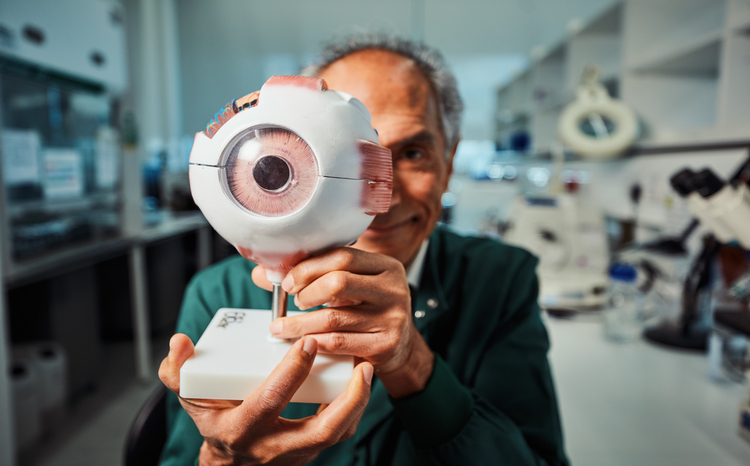Key Takeaways
- Researchers at the University of Edinburgh are developing a digital tool to predict dementia risk through routine eye tests.
- The project utilizes nearly one million eye scans, creating the largest dataset of its kind globally, with AI analyzing patterns linked to demographic and health information.
- Optometrists will be equipped to refer patients for further evaluation and potentially monitor cognitive decline using this innovative software.
Developing AI Tools for Dementia Risk Prediction
A research team led by the University of Edinburgh is collaborating with high street opticians to create a digital tool aimed at predicting dementia risk during routine eye exams. The initiative, known as NeurEYE, has compiled nearly one million eye scans from opticians throughout Scotland, establishing the largest dataset of this nature in the world.
The eye scans will be analyzed using AI and machine learning, linking the image data to anonymized patient records that include demographics, treatment history, and pre-existing conditions. This approach will help researchers identify patterns that may indicate an increased risk of dementia, offering insights into overall brain health.
Baljean Dhillon, a professor of clinical ophthalmology at the University of Edinburgh and co-leader of NeurEYE, highlights the potential of eye examinations, stating, “The eye can tell us far more than we thought possible.” The research takes advantage of the readily available equipment found in optometry practices, allowing efficient monitoring of patients’ eye health linked to cognitive conditions.
The data utilized in the study has been granted permission for use by the Public Benefit and Privacy Panel for Health and Social Care, part of NHS Scotland. This project marks the second initiative supported by NEURii, a global collaboration that includes pharmaceutical company Eisai, Gates Ventures, and other academic and medical research entities. The first project under NEURii, called SCAN-DAN, focuses on using brain scans and AI for dementia risk prediction.
Optometrists involved in the study will have access to AI-based software that can serve multiple purposes: as a predictive and diagnostic tool for conditions such as Alzheimer’s, and as a means to refer patients for further health assessments if signs of brain disease are detected. Ian Cameron, an optometrist in Edinburgh, emphasizes the importance of their ongoing patient relationships, explaining, “It makes sense for us to be the GP of the eyes and monitor as much health as we can see.” The integration of AI in this field allows for a more thorough evaluation of eye health.
Furthermore, recognizing individuals at risk of dementia could enhance the development of new treatments, allowing more effective identification of suitable candidates for clinical trials, as well as improved monitoring of treatment outcomes. Miguel Bernabeu, a professor of computational medicine and co-lead of NeurEYE, adds that current AI advancements have the potential to transform medical imaging and disease prediction. He stresses the importance of equitable and unbiased algorithms, which require diverse datasets representing the entire at-risk population.
In addition, all collected data will be securely managed within the Scottish National Safe Haven, a dedicated platform for the research use of NHS electronic records. This meticulous approach to data management supports the goal of creating a reliable and ethical framework for early dementia detection.
The content above is a summary. For more details, see the source article.















